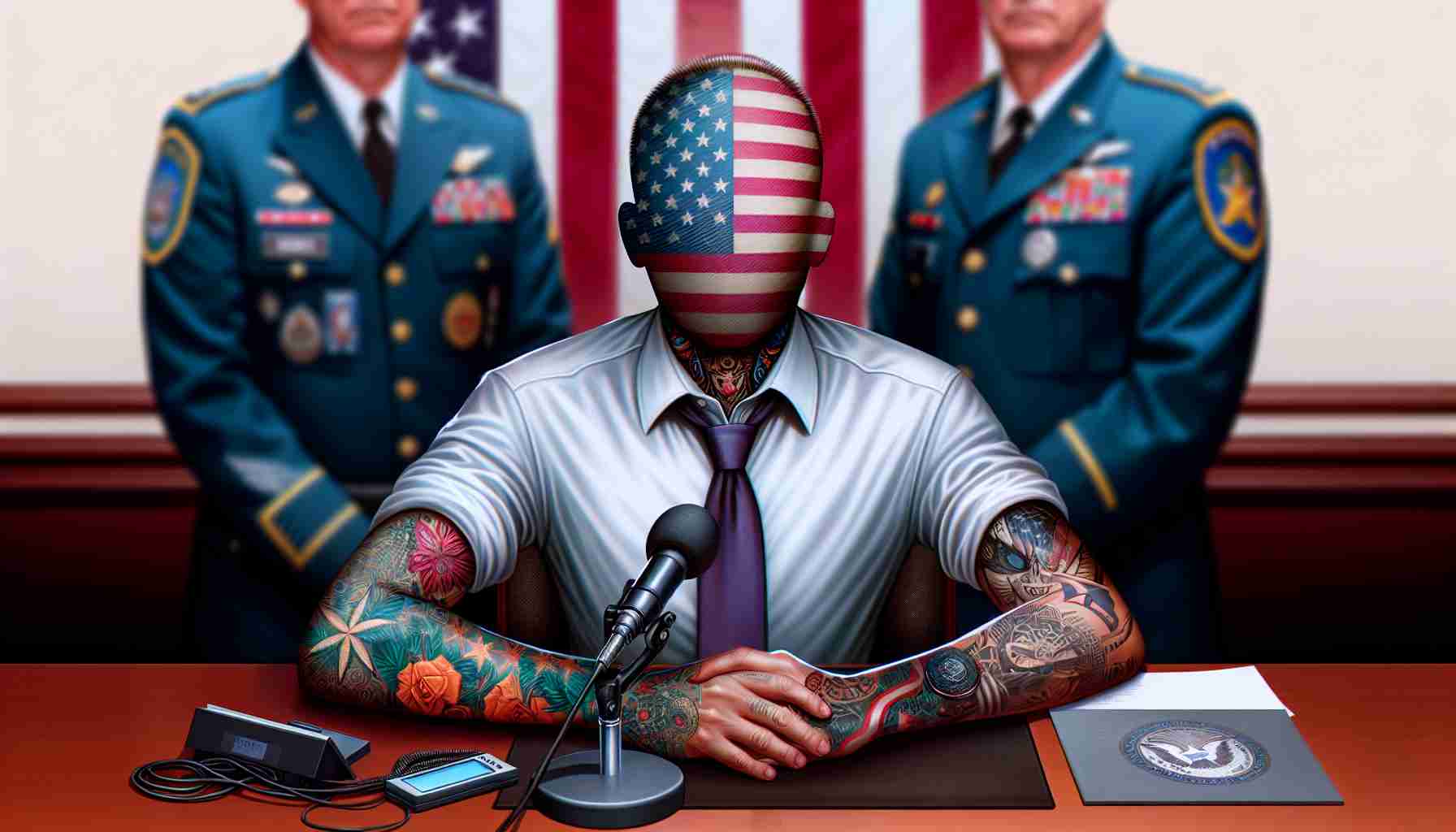On January 14, 2021, concerns were raised regarding Pete Hegseth, then President-elect Donald Trump’s nominee for defense secretary. Master Sergeant DeRicko Gaither of the National Guard alerted Major General William Walker, stating that Hegseth’s tattoos might pose a security risk.
One tattoo, featuring the phrase “Deus Vult,” which translates to “God Wills It,” caught Gaither’s attention due to its connections with Christian activist movements. This phrase, historically linked to crusaders, has recently been associated with some right-wing extremist groups. Alongside it, Hegseth displays another tattoo, the Jerusalem Cross, which has been misappropriated by certain factions to symbolize their ideology.
In his correspondence, Gaither expressed serious concerns regarding Hegseth, who previously served in multiple combat operations and was a notable figure on conservative media. After Hegseth learned he was sidelined from his duty in the capital, he felt this was an abandonment by the military.
Further complicating matters, a second National Guard member confirmed that Hegseth’s tattoos were flagged for review due to their potential implications. While the National Guard has refrained from publicly commenting on Hegseth’s situation, the scrutiny highlights the evolving conversation around military personnel, their beliefs, and the implications of their symbols in a polarized environment.
Understanding Symbolism: Tips, Life Hacks, and Interesting Facts
In our increasingly complex world, understanding the symbols we carry—be they tattoos, clothing, or even gestures—can lead to deeper insights about ourselves and those around us. With the recent discussion surrounding military personnel and the implications of their symbols, here are some tips and interesting facts that can help you navigate the world of symbolism more effectively.
1. Research Symbol Meanings: Before getting a tattoo or adopting any symbol, it’s vital to research its meanings and associations thoroughly. Many symbols, while appearing innocuous, may have historical or cultural connotations that you should consider. Websites like tattoo.com provide extensive resources on tattoo symbolism.
2. Consider Personal Representation: When choosing symbols to represent your beliefs or identity, think about how they will be perceived by others. Your intention may be pure, but interpretations can vary widely. Engaging in discussions with others about these symbols can provide clarity.
3. Be Aware of Context: Symbols can change meaning depending on the environment—what’s accepted in one community might be rejected in another. Understanding the cultural, historical, and political backgrounds can help you navigate potentially tricky situations.
4. Communicate the Meaning: If you choose to get a tattoo or adopt a symbol that may be misinterpreted, consider how you can best communicate its meaning to others. This can prevent misunderstandings and foster more profound connections with those around you.
5. Stay Updated on Current Events: Being informed about the current discussions regarding symbolism can help you better understand what messages might be perceived in various contexts. Following reliable news sources can keep you abreast of these shifts.
Interesting Facts about Symbols:
– The phrase “Deus Vult,” often associated with the Crusades, has seen a resurgence in modern political discourse, showcasing how historical symbols can be repurposed over time.
– Tattoos can significantly affect perceptions; studies show that people often link tattoos to various personality traits, including rebellion or authority.
– Various religious symbols, such as the Jerusalem Cross, have been repurposed by extremist groups, highlighting the importance of historical context in understanding symbolism.
Final Thoughts: Symbols hold great power in our society. They can unite or divide, inspire or offend. By taking the time to understand the implications of these symbols and engaging in discussions about them, we can foster a more tolerant and informed environment. For more insights on symbolism and its implications, visit history.com.
Understanding the depth of symbols can enrich your life and improve your interactions in an increasingly complex world.

